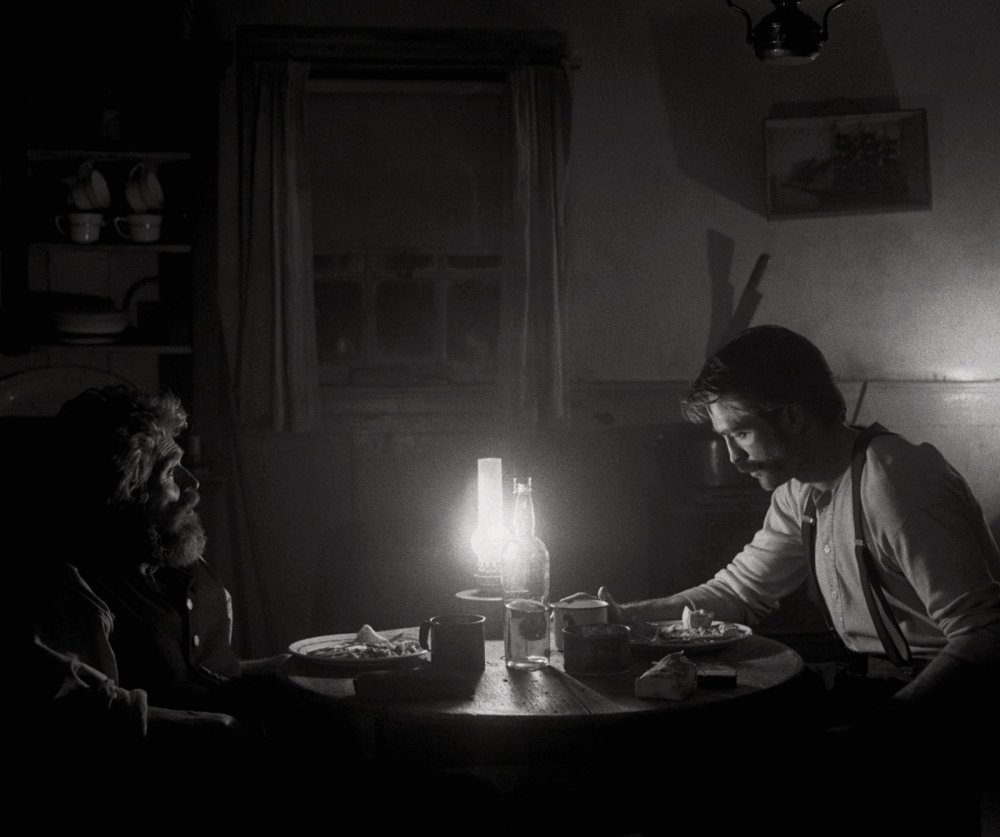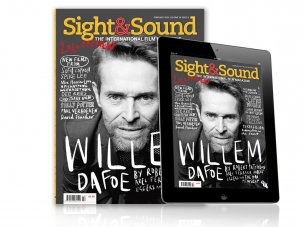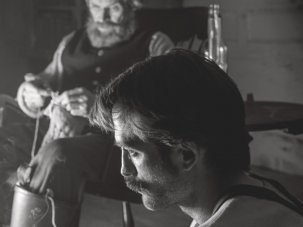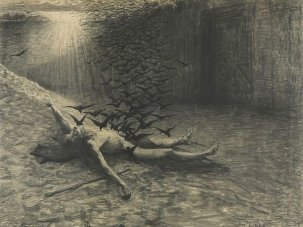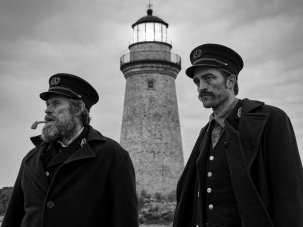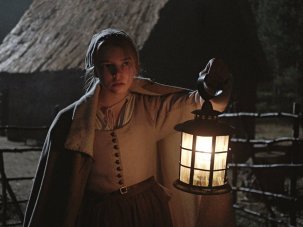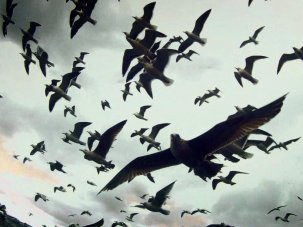Two films into his career and Robert Eggers has already carved out a reputation (and no small measure of buzz) for period horror films that earth their antique atmospheres in thoroughgoing historical research. Both The Witch (2015) and now The Lighthouse have remote spots in Canada standing in for New England, but in other regards ply their trade with an eye and ear for authenticity that – in the present case – involved Eggers and his co-writing brother Max burying their noses in works by Herman Melville, Maine novelist Sarah Orne Jewett and other 19th-century literary sources. On a pure dialogue level, and with a whiskered, wild-eyed Willem Dafoe the perfect conduit for them on screen, The Lighthouse boasts triumphantly salty, blustering expletives and rants to rival anything Ahab or even Captain Haddock ever bellowed into an ocean gale.
USA/Canada 2019
Certificate 15 109m 10s
Director Robert Eggers
Cast
Ephraim Winslow Willem Dafoe
Thomas Howard, ‘Thomas Wake’ Robert Pattinson
Mermaid Valeriia Karamany
[1.19:1]
UK release date 31 January 2020
Distributor Universal Pictures International UK & Eire
universalpictures.co.uk/the-lighthouse
► Trailer
Dafoe is lighthouse keeper Thomas Wake, and Eggers’s cloistered two-hander ebbs and flows on the rising tide of tension between him and his younger assistant ‘wickie’, Robert Pattinson’s brooding newcomer Ephraim Winslow – a timberman in the past, now a loner at loggerheads with Wake on their lonely isle off the Maine coast. We’re sometime in the 1890s.
Reuniting with cinematographer Jarin Blaschke, Eggers frames this world in charcoaly black-and-white and within the archaic, squarish Movietone aspect ratio used for silent-to-sound crossover-era films such as Sunrise (1927) and M (1931). So while the dialects and details of the wickies’ labours place us in Melville’s day, formally The Lighthouse offers extra layers of cinephile pastiche – at times suggesting maritime melodramas by Jean Epstein or Jean Grémillon, at others a kind of lugubriously nightmarish Béla Tarr revisioning thereof.
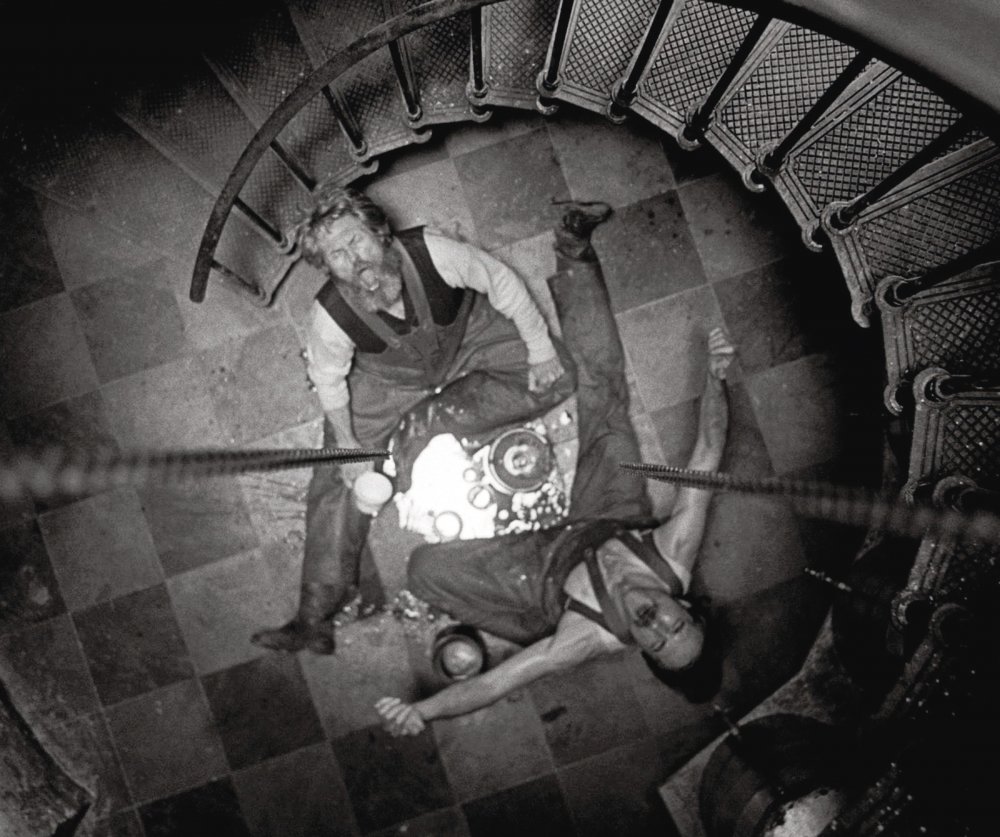
The sound of the thing is something else. Backers A24 have become synonymous with the maligned term ‘elevated horror’, and here a nautical symphony of foghorns and flatulence, wind and waves, combined with those graphite visuals and an overly pervasive Under the Skin-style score by Mark Korven, tips Eggers’s psychodrama into quasi-avant-garde territory. This side of Lucien Castaing-Taylor and Véréna Paravel’s experimental fishing-industry doc Leviathan (2013), it’s difficult to think of a film that leaves you feeling so bedraggled and weather-beaten.
Indeed, the craft of the film is so enveloping, and its claustrophobic conflicts so vividly lit and staged, that it’s a bit of a puzzle why The Lighthouse doesn’t land with more force. Eggers locks Dafoe’s glintingly maniacal seadog and Pattinson’s moustachioed man of mystery into a cabin-fever drama that intoxicates with its fireside atmospheres and outbursts, yet ultimately sails a readily predictable course. The seasonal-work meltdown movie already has plenty of haunting offerings, from The Shining (1980) to Berberian Sound Studio (2012), though in narrative terms The Lighthouse resembles nothing so much as the 2010 Russian film How I Ended This Summer, which pits a student intern against a more experienced geophysicist in a locking of horns at an Arctic weather station.
Watching The Lighthouse is like holding a seashell to your ear and hearing echoes of movies past, and it’s these waves of referentiality and the film’s arch, postmodern remove that are arguably at odds with the production’s lived-in poetics, its studied verisimilitude. Here is a huis clos that lets in too much 21st-century light; a “hot Promethean plunder” (Wake’s memorable phrase) in which the story never quite pulls its weight amid Eggers’s commanding feel for texture and behaviour.
In the February 2020 issue of Sight & Sound
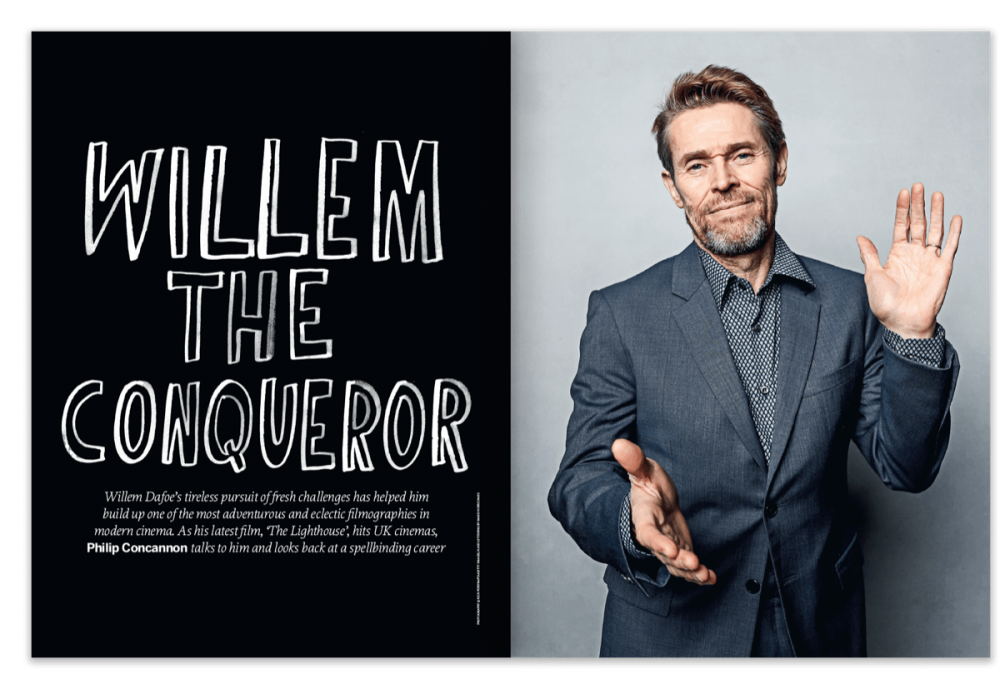
Willem the conquerer
Willem Dafoe’s tireless pursuit of fresh challenges has helped him build up one of the most adventurous and eclectic filmographies in modern cinema. As his latest film, The Lighthouse, hits UK cinemas, Philip Concannon talks to him and looks back at a spellbinding career.
+ Abel Ferrara on Willem Dafoe: “We have an understanding”
+ Driven to extremes
Robert Pattinson tells Philip Concannon what drew him to The Lighthouse, why he likes a director who knows exactly what he wants and why Willem Dafoe’s ‘impossible’ career is a one-off.
+ Robert Eggers on The Lighthouse: “I knew it could get weird”
+ Divine inspirations
Behind the bold, original vision Robert Eggers displays in The Lighthouse lies a vast trove of literary and visual influences, from Herman Melville to H.P. Lovecraft and – just possibly ‘Dad’s Army’, writes Graham Fuller.
-
The 100 Greatest Films of All Time 2012
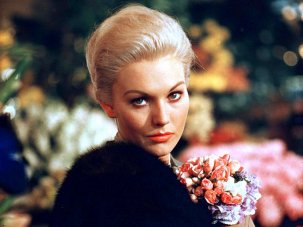
In our biggest ever film critics’ poll, the list of best movies ever made has a new top film, ending the 50-year reign of Citizen Kane.
Wednesday 1 August 2012
-
The best films now on UK streaming services
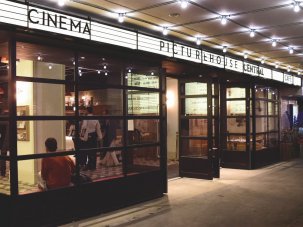
Looking for the best new cinema releases available on British VOD platforms? Here’s our guide to how to keep up with the latest movies while you’re...
-
The Digital Edition and Archive quick link
Log in here to your digital edition and archive subscription, take a look at the packages on offer and buy a subscription.




